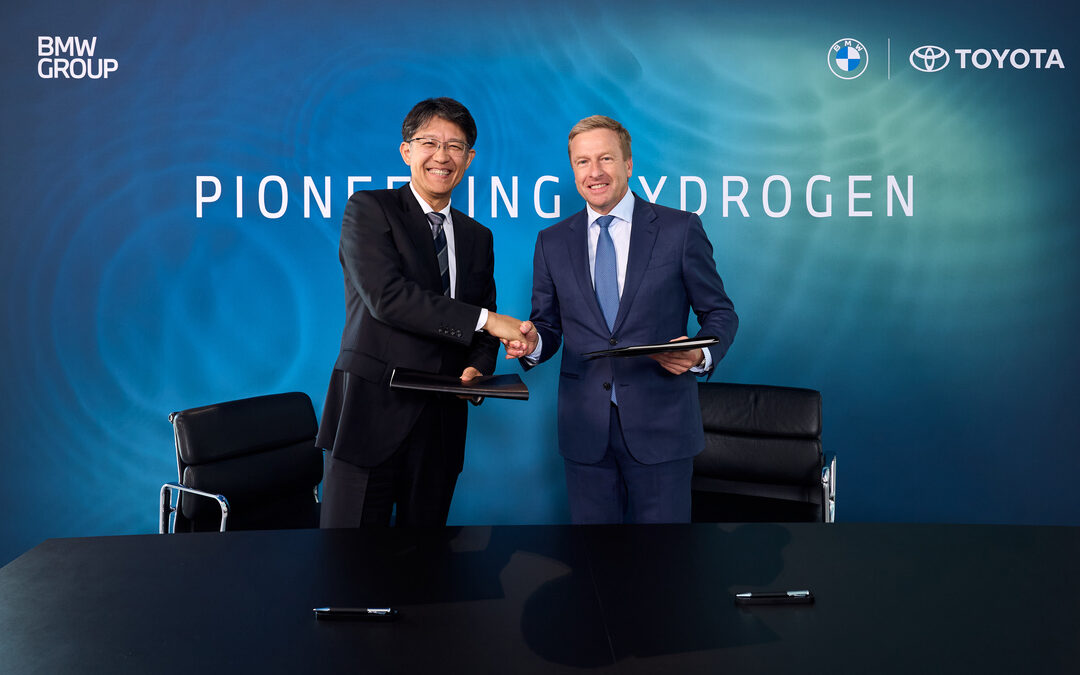BMW Plans to Launch 1st Hydrogen-Powered Electric Car in 2028
BMW will be collaborating with Toyota Motor Corp. to develop a third-generation fuel cell system, which will be installed in the electric vehicle.
German automobile major BMW plans to launch its first hydrogen-powered vehicle into the market in 2028, announced the company on Thursday.
According to an official statement, BMW will be collaborating with Toyota Motor Corp. to develop a third-generation fuel cell system, which will be installed in electric vehicles of both companies.
“Powered by hydrogen and driven by the spirit of our cooperation, it will underscore how technological progress is shaping future mobility,” said BMW Chairman Oliver Zipse in the statement.
“And it will herald an era of significant demand for fuel cell electric vehicles.”
Fueling change
Both companies will also work toward driving down costs by amalgamating powertrain units to expand commercial and passenger vehicle demand, the press note said.
By making FCEV a more accessible option, the partnership will contribute to creating a hydrogen society, the note added.
“We will deepen our collaboration in efforts such as the joint development of next-generation fuel cell systems and the expansion of infrastructure, aiming for the realization of a hydrogen society,” said Toyota Motor Corp. President Koji Sato.
Both companies are closely working with hydrogen-producing companies and distribution and refueling facilities to ensure a stable hydrogen supply and reduce costs.
BMW is by far the strongest proponent of hydrogen technology among German carmakers, and it has been testing a hydrogen passenger vehicle, the iX5 Hydrogen, with a range of 500 km and the ability to refuel in three to four minutes.
Future track
A fuel cell vehicle uses an electric motor like an EV but draws power from a fuel stack where hydrogen is separated by a catalyst to produce electricity.
Hydrogen-powered vehicles can refuel quickly and have a long-range, but few carmakers have invested in the technology because of high costs and a limited network of fueling stations.
BMW said it assumed that the hydrogen charging infrastructure would have developed significantly by 2028 to accommodate its plans.
Nirmal Menon
Related posts
Subscribe
Error: Contact form not found.


